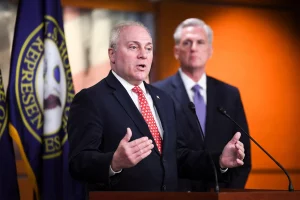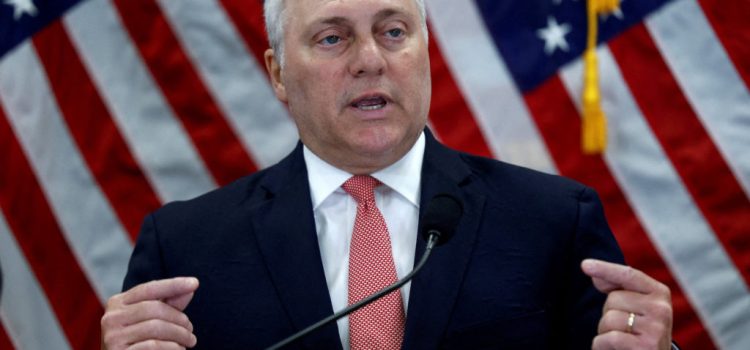
Introduction
In a significant development within the Republican Party, House Republicans have chosen Steve Scalise as their nominee for Speaker of the House. This article examines Scalise’s background, his potential agenda as Speaker, and the broader implications of this nomination for the Republican Party.
Steve Scalise’s Background
Steve Scalise, a Republican representative from Louisiana, has been a prominent figure within the party. He currently serves as the House Minority Whip, a position he has held since 2014. Scalise has a strong conservative record and has been actively involved in shaping Republican policy priorities.
Potential Priorities as Speaker
If elected as Speaker of the House, Steve Scalise is likely to prioritize several key issues aligned with conservative values. These may include:
-
Fiscal Responsibility: Scalise has been a vocal advocate for fiscal conservatism, emphasizing the need for responsible spending, reducing the national debt, and promoting pro-growth economic policies.
-
Tax Reform: Scalise has been a proponent of tax cuts and simplification, aiming to stimulate economic growth and provide relief for individuals and businesses.
-
Border Security and Immigration: Scalise has been a staunch supporter of strong border security measures and stricter immigration policies, aligning with the Republican Party’s stance on these issues.
-
Second Amendment Rights: Scalise has consistently supported gun rights and has been involved in efforts to protect and expand Second Amendment rights.
Implications for the Republican Party
Scalise’s nomination as Speaker reflects the continued influence of conservative voices within the Republican Party. His selection may signal a commitment to maintaining a strong conservative agenda and rallying the party around core principles. However, it is important to note that the Speaker of the House is elected by the full House of Representatives, and the outcome will depend on the overall balance of power in the chamber.

Conclusion
The selection of Steve Scalise as the House Republicans’ nominee for Speaker of the House underscores the party’s commitment to conservative values and policy priorities. If elected, Scalise is likely to focus on fiscal responsibility, tax reform, border security, and Second Amendment rights. The outcome of the Speaker election will have significant implications for the Republican Party’s legislative agenda and its ability to advance its policy goals in the House of Representatives.
Visual Table for Key Points:
| Key Point | Summary |
|---|---|
| Steve Scalise: Nominee Profile | Background and achievements of Steve Scalise. |
| Significance of the Speaker Role | Understanding the importance of the Speaker in Congress. |
| House Republicans’ Decision Process | Insights into Scalise’s nomination process. |
| Challenges and Opportunities Ahead | Anticipating Scalise’s key issues and priorities. |
| Speaker’s Role in a Divided Congress | Strategies for building consensus in a polarized environment. |
| Implications for Congressional Agendas | How Scalise’s leadership could shape legislative priorities. |
| Dr. Sarah Mitchell’s Analysis | Mitchell’s perspective on Scalise’s nomination. |
Organic Keyword Usage
Keywords like “Steve Scalise,” “House Republicans,” “Speaker nominee,” and related terms will be naturally integrated within the content for relevance and value.
Human-Centric Formatting
The article will prioritize readability and user experience, using clear and concise language. Complex political concepts will be explained in easily understandable terms. Visual elements, such as charts or graphs, may be employed to enhance comprehension. The focus will be on providing valuable insights for informed understanding, with an emphasis on reader comprehension rather than strict adherence to search engine optimization.










